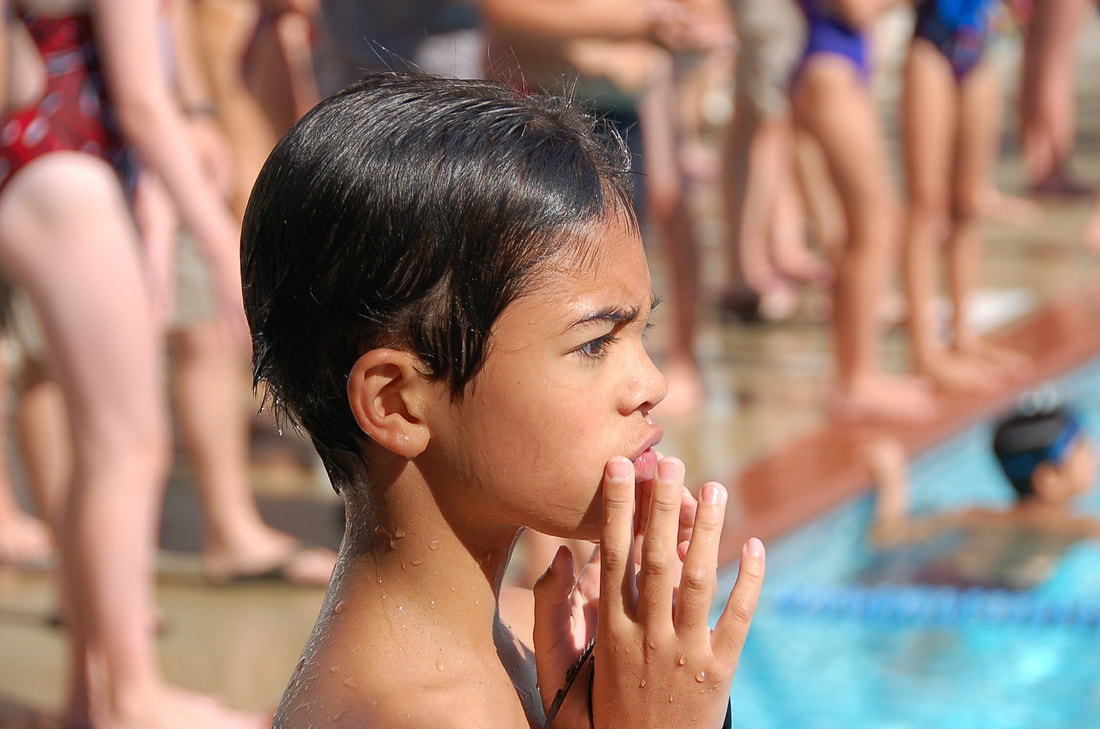If your child is nearing the age when they can become eligible or weren't quite ready to compete this time round, here are some tips to get your child ready for the school swimming carnival the next time it comes around. 1. Consistency is the key: Turning up regularly to your lessons is extremely important in skill acquisition. Just like learning other physical skills such as tennis, surfboard riding, ice-skating etc swimming requires time and practice. Turning up to your lessons is vital to the learning process! 2. No Breaks over Winter: The next block of school swimming carnivals start again in December 2019 (Catholic Primary Schools) and in February 2020 (Public Schools). So, we have roughly 10-12 months to prepare. By "taking a 3-4 month break over winter" and returning in September/ October it leaves only 8-12 weeks to "catch-up" to lost skill practice and swimming fitness levels. It's even less if you take into account a summer holiday vacation. This places a child's preparation at a disadvantage compared to the child who swims all year round maintaining and further developing their swim skills and swimming fitness levels. So my tip is to swim through winter for the best possible preparation. We have indoor heated facilities all year round, so no matter what the weather outside the learner will be comfortable. 3. Dives and Turns Classes: Enroll your child in our dives and turns classes to prepare their diving and tumble turning skills for race day. These classes teach your child how to do a dive and tumble turn and they run all year round. We have classes on both weekdays and weekends so check with our reception staff for further details and availability. 4. Race Skills Course: Over the January school holiday period we had amazing success with students participating in our "Race Skills Course". Many students benefited from our coaches expertise and tuition in further advancing their race starts, turns and streamline skills in all four competitive strokes. We will be running a Race Skills Course every school holidays. 5. Swim Club / Friday Night Races: Turning up to a school swimming carnival for the first time can be quite daunting. To help make the experience easier and more enjoyable why not come along to our Friday night races with Jones Swim Club. Everyone is welcome. Jones swim club is a caring and supportive environment and a great way to be introduced to swim races. The races are held every second Friday night. Please check with our reception staff for more details. Hopefully the above tips help in giving parents a few suggestions on how to best prepare your child to prepare for the next swimming carnival. As always if you have any further questions, please contact one of our friendly staff who will be more than happy to help you. We want to see your child excel! AuthorJohn Sortwell - Centre Manager, ex-competitive swimmer, father of 3 and aquatic educator for over 25 years. Myth: Children who have not upgraded to a new level in a while are not progressing.
Fact: For a student to upgrade to the next level, they need to learn several small skills to master the overall 'goal' of the current level. A student does not acquire all these skills immediately. Rather, learning is a process in which skills are acquired in increments which may seem small or insignificant but which are in fact vital to mastering each level. For example, in our White Stingray level where students are learning the Breaststroke kick, there are several components to mastering the correct technique. Students need to be able to turn their feet out, perfect the motion and build the strength required to generate the 'push' (and this is only the basics!) Our teachers and supervisors know how tricky it is to master just one of these skills and understand the importance of celebrating with a child when they do. From a parents point of view it may seem as though the progression is non-existent, when in fact your child is working hard at making small (but still significant!) gains within their level. We encourage you to speak with our pool deck supervisors who monitor our students' progress closely. They will be able to explain the achievements already made in your child's level as well as the skills still to be attained, and will even be able to provide you and your child with some extra tips and encouragement. Look for them on pool deck in the red shirts! Author: Josephine Moss (Swim School Coordinator)
For children aged under 5 years old, home swimming pools are the leading location for drowning.
There were two key safety messages which were the focus of this survey:
The results revealed that among parents of children under 5 years old, there is a greater value placed on supervision than restricting access to this age group. Whilst 63% of respondents reported always supervising children around their pool in the previous month, only 45% reported always restricting access to their pool in the previous month. This is a major concern as statistics show that lacking either of these factors contributes to drowning deaths. RLSS Australia have previously published data following a 13 year study into drowning deaths in NSW. Looking at children under 5 years old who had drowned in a home swimming pool, supervision was completely absent in the majority of cases. Regarding access to the pools, data revealed that of those children who had drowned in this period:
This data confirms the absolute necessity of both constant active supervision and restricting access with compliant, well maintained fencing. Royal Life Saving Society’s Keep Watch Advice:
Author: Josephine Moss (Swim School Coordinator) |
Details
Archives
April 2024
Categories |
We Would Love to Have You Visit Soon!
Address524 Railway Pde Hurstville
|
Telephone |
|
© Copyright 2019 Col Jones Swim Fitness



 RSS Feed
RSS Feed